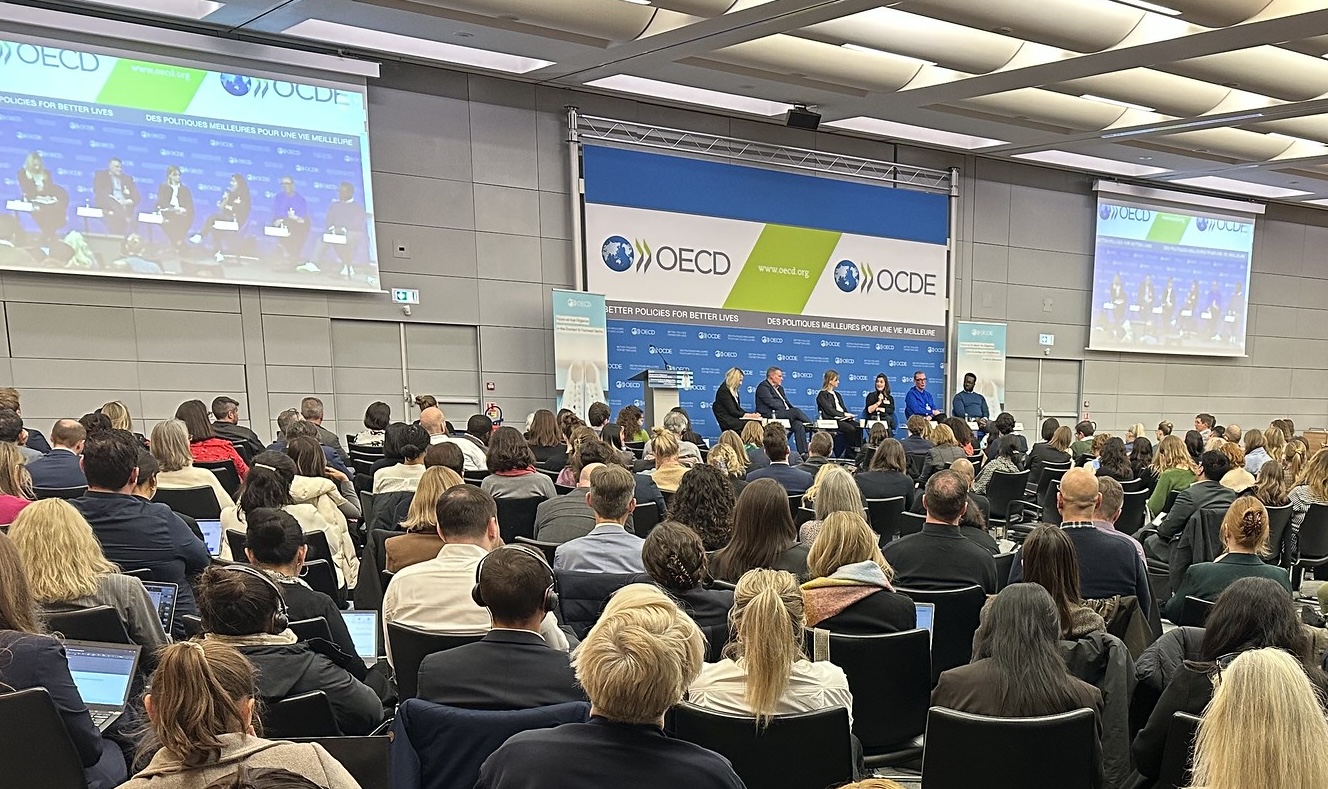Support worker organizing, and the rest will follow: Reflections from the OECD Forum
March 6, 2024
Blogs
By Sanchita Banerjee Saxena
I had the opportunity to attend the 2024 OECD Forum on Due Diligence in the Garment and Footwear Sector in Paris a few weeks ago. This gathering brought together representatives of government, business, trade unions, civil society and academia to discuss key issues and risks related to due diligence in global garment and footwear supply chains.
The event was opened by a senior leader at the OECD who emphasized the importance of engaging with all rights holders and vulnerable actors in the value chain as a critical component of due diligence. A part of this process of engagement is building knowledge and capacity of all key actors, he stated.
An underlying theme that emerged in many of the discussions were the large power imbalances in the current system of relationships throughout the supply chain: between companies and their suppliers, between suppliers and their workers, and between brands and retailers.
To mitigate these skewed relationships, it is imperative for key actors, companies, governments, and civil society, to collaborate with partners who are on the same journey and have similar goals.
The power of brands can also be used in a positive way to push for improvements. For example, brands can use their leverage to collectively advocate for meaningful change. A representative of a manufacturer association argued that the real power comes from brands joining together: “Don’t leave a bad situation immediately [in a country] because it then becomes a culture of hiding rather than a culture of compliance. Give them [suppliers] time to remediate.”
In several panels, it was clear that for many of the most pressing demands for this sector—negotiating binding agreements, going beyond audits, paying a living wage, accessing appropriate remedy, and adapting to climate change—supporting worker organizing and giving workers a real voice is key to ensuring that meaningful action is taken and the current power imbalance is addressed. As a labor leader from Bangladesh said passionately, “Give us freedom of association and the rest will follow.”
Binding agreements (like the Bangladesh Accord and the Dindigul Agreement, for example) are important tools that can bring together both the private sector and workers to enact meaningful change. It is the legally binding aspect that distinguishes these agreements from voluntary guidance. “Without legal enforceability, there are no industrial relations. We need checks and balances because the private sector has all the power. We need strong unions and supportive governments to ensure that these agreements are enforced,” stated a representative from a global workers’ organization. Both representatives from the German and US governments also highlighted the importance of independent unions in the negotiating process. A representative from a major brand, who is a signatory to both of these agreements, said emphatically, “We have a choice and we choose to co-build a model with civil society. We look at risks to rights holders and try to figure out how do we address those. Binding agreements provide a level playing field.”
In other discussions, many agreed that audits provide only a snapshot in time and are useful to a limited extent, and that certifications and audits are not the same as due diligence. To make substantial changes to the due diligence process, there needs to be a fundamental shift in thinking. A representative from an NGO argued, “Workers need to have freedom of association, otherwise we won’t really address the issues. Companies have to take real steps to support workers organizations.”
With respect to a living wage, brands must be serious about giving a voice to their workers in their supply chain, and then wages will rise. An example of this is the Wage Indicator Foundation’s work in Indonesia where they work on the ground directly with unions to collect data about wages. Unions then use this data to focus their social dialogue and advocacy. As a result, workers have seen an increase in wages and a decrease in working hours. This ‘worker-based evidence building’ though time consuming can be highly effective.
A labor activist from Bangladesh described the impacts of climate change on workers in the factories. She discussed how intense heat was causing workers to faint in the factories and excessive flooding was preventing workers from going to work and receiving their daily wages. She argued that in addition to brand-led mitigation investments and fair purchasing practices, if workers receive a living wage, they will be able to adapt more readily to these negative climate impacts. This can only happen when workers are able to organize, she emphasized.
It is clear that companies must engage workers to design ways to address these urgent issues, rather than create programs and policies for them. Without this fundamental shift in thinking, real progress on these issues will be limited and superficial at best. Companies must also recognize the business case for improved worker engagement. As a representative from a global brand said, “Independent unions can make the company better and more productive.”
Article One partners with companies to help surface opportunities to ensure that workers are at the center of their business and human rights strategy and to re-envision their supply chains so that they meet the needs of all stakeholders. For more information, please contact hello@articloneadvisors.com.
Photo credit: OECD Centre for Responsible Business Conduct
